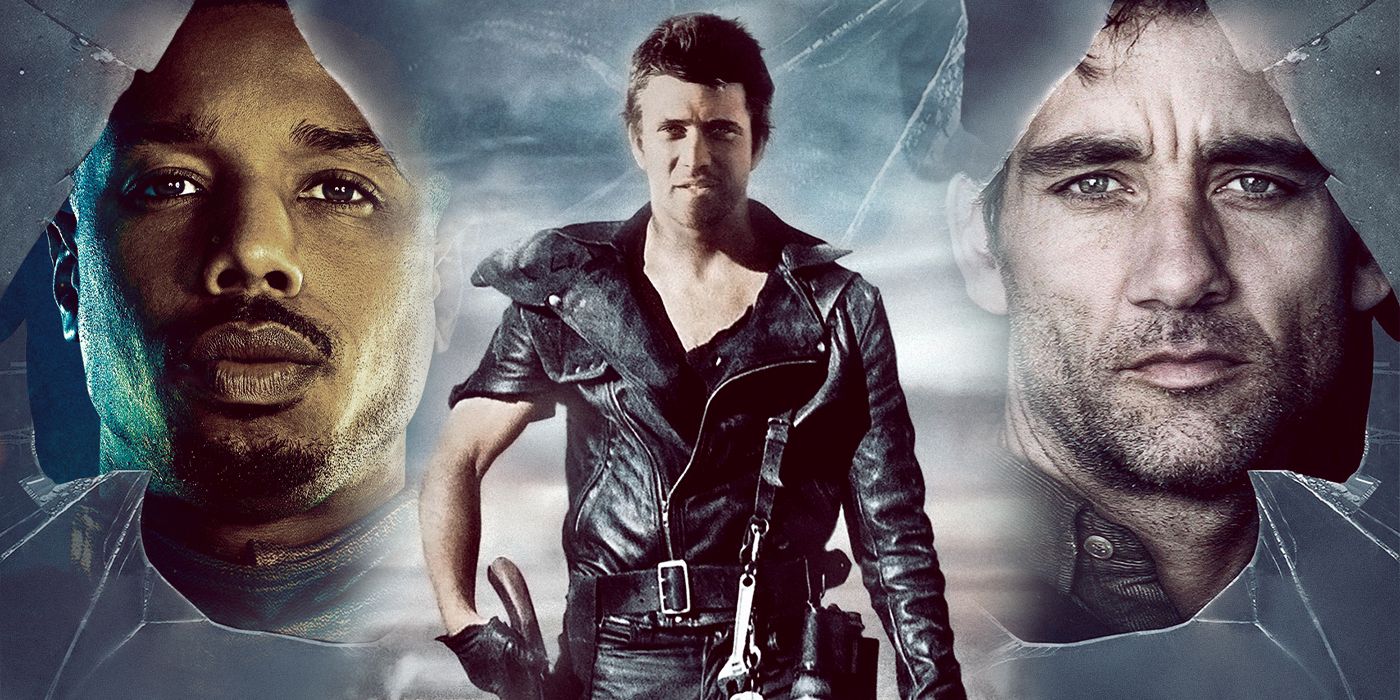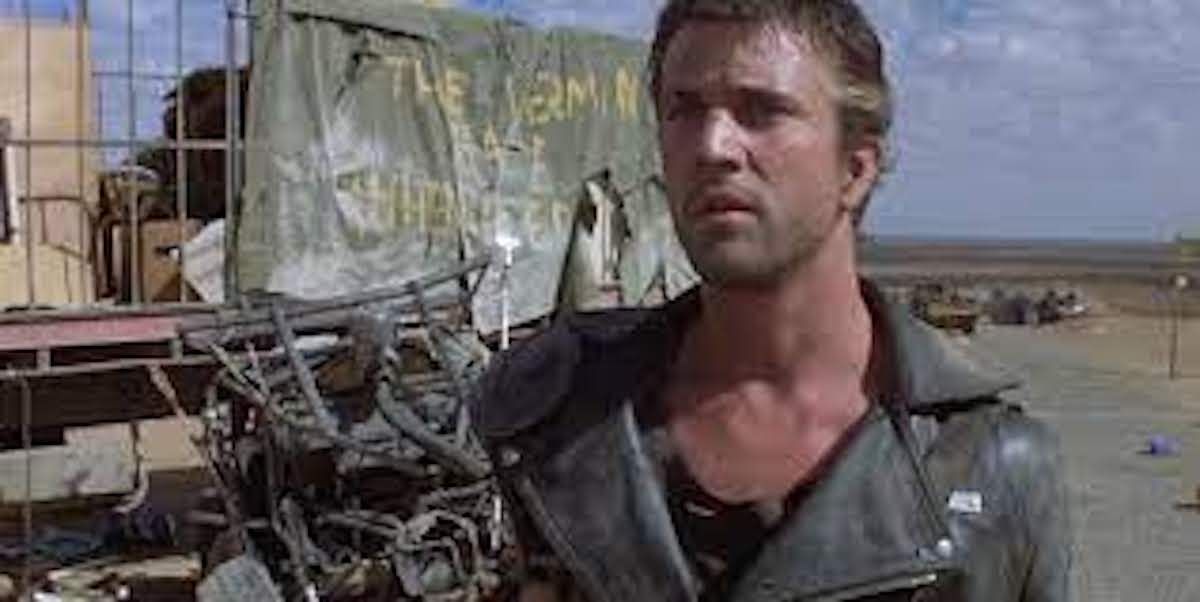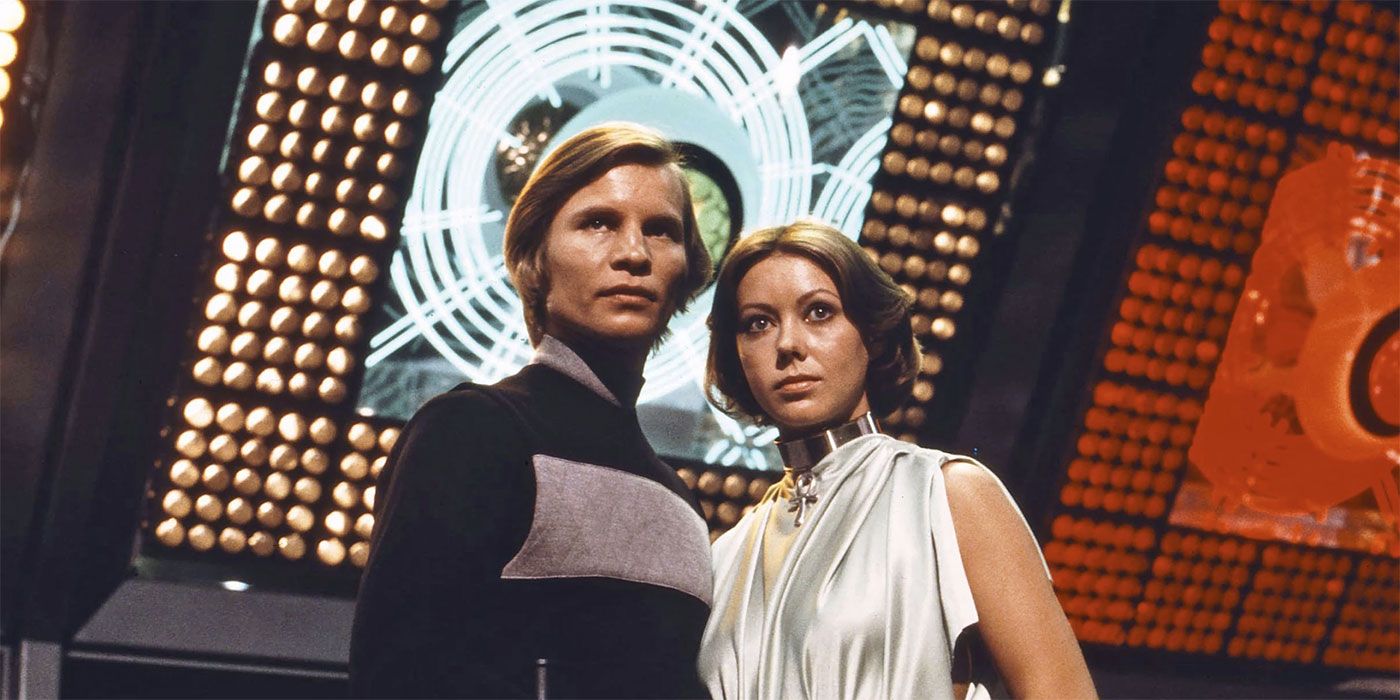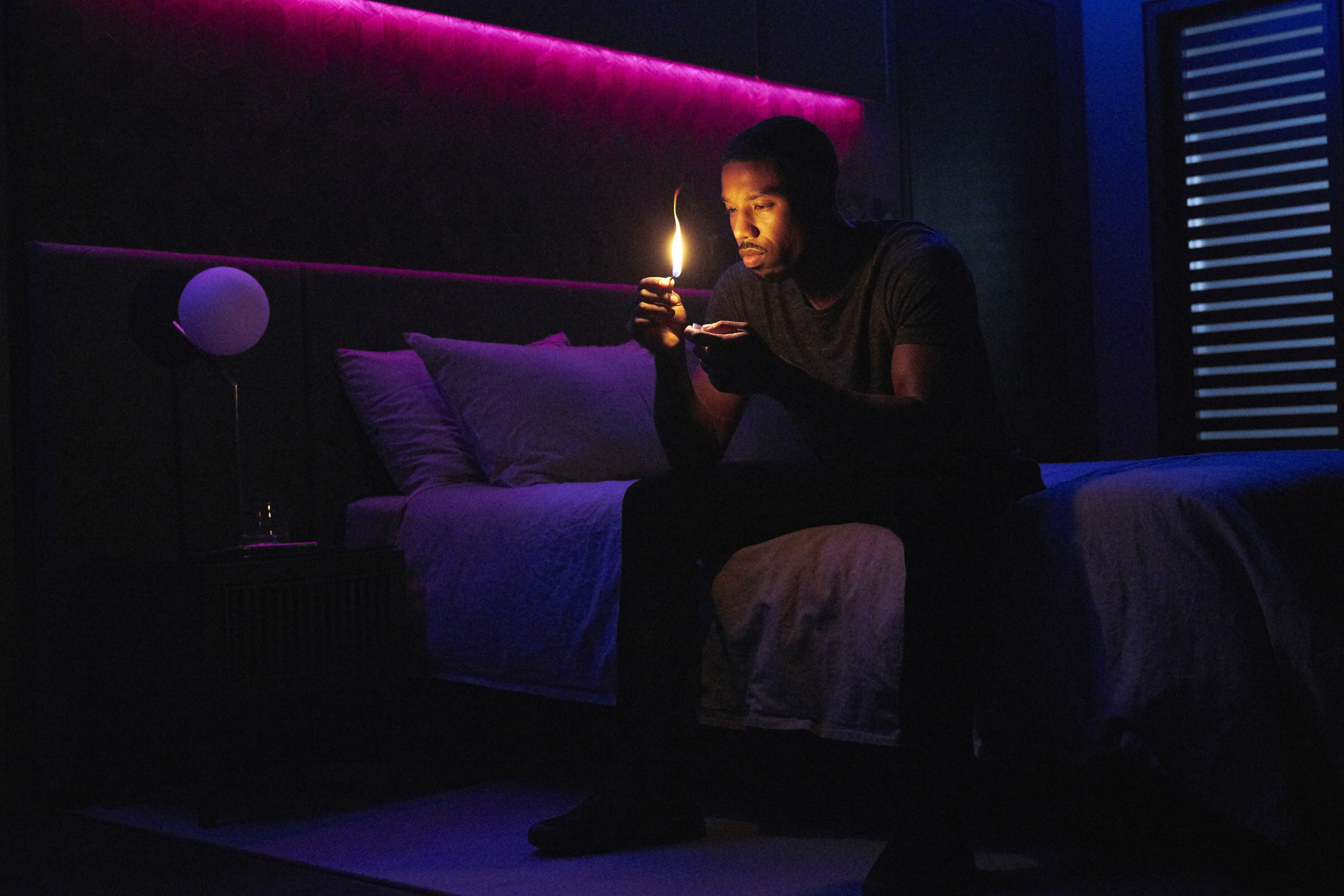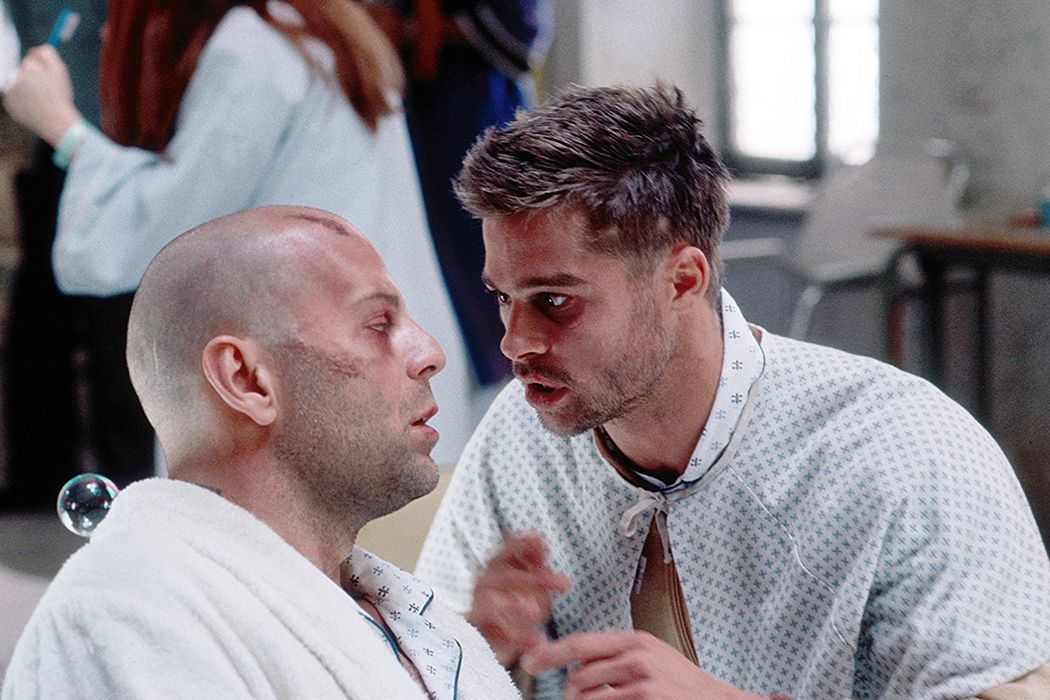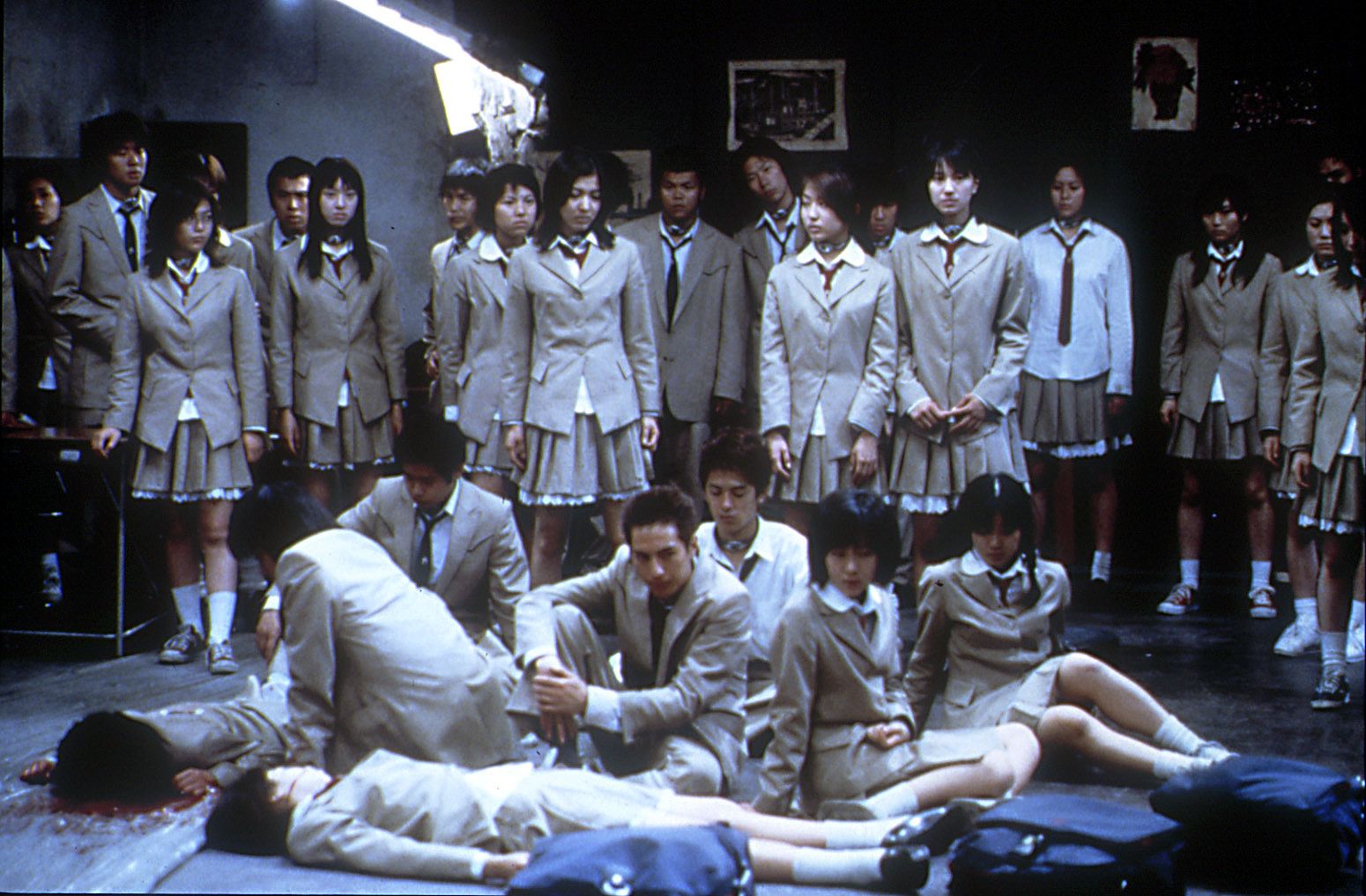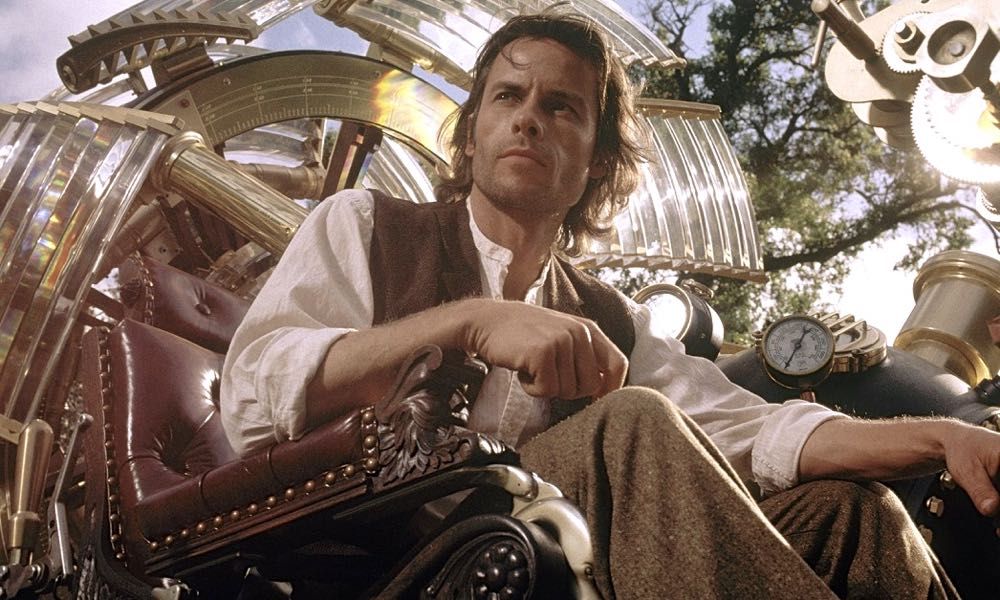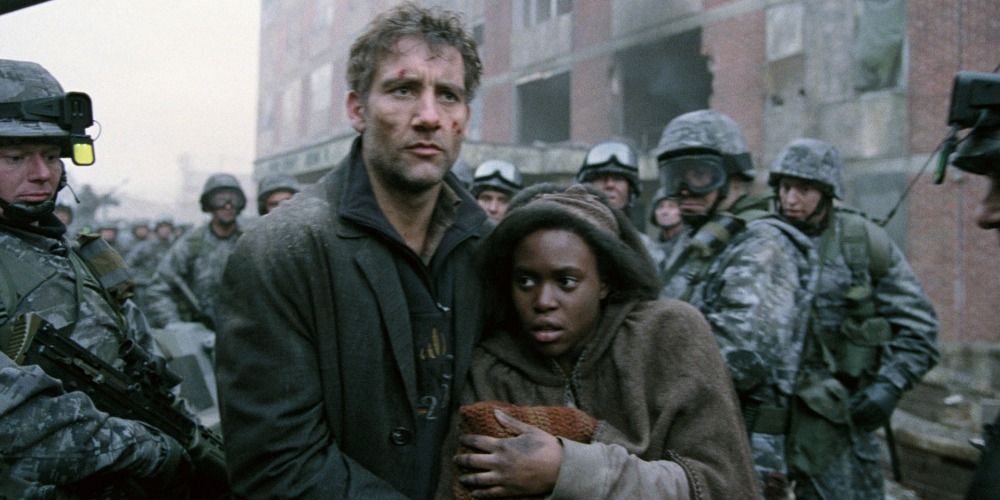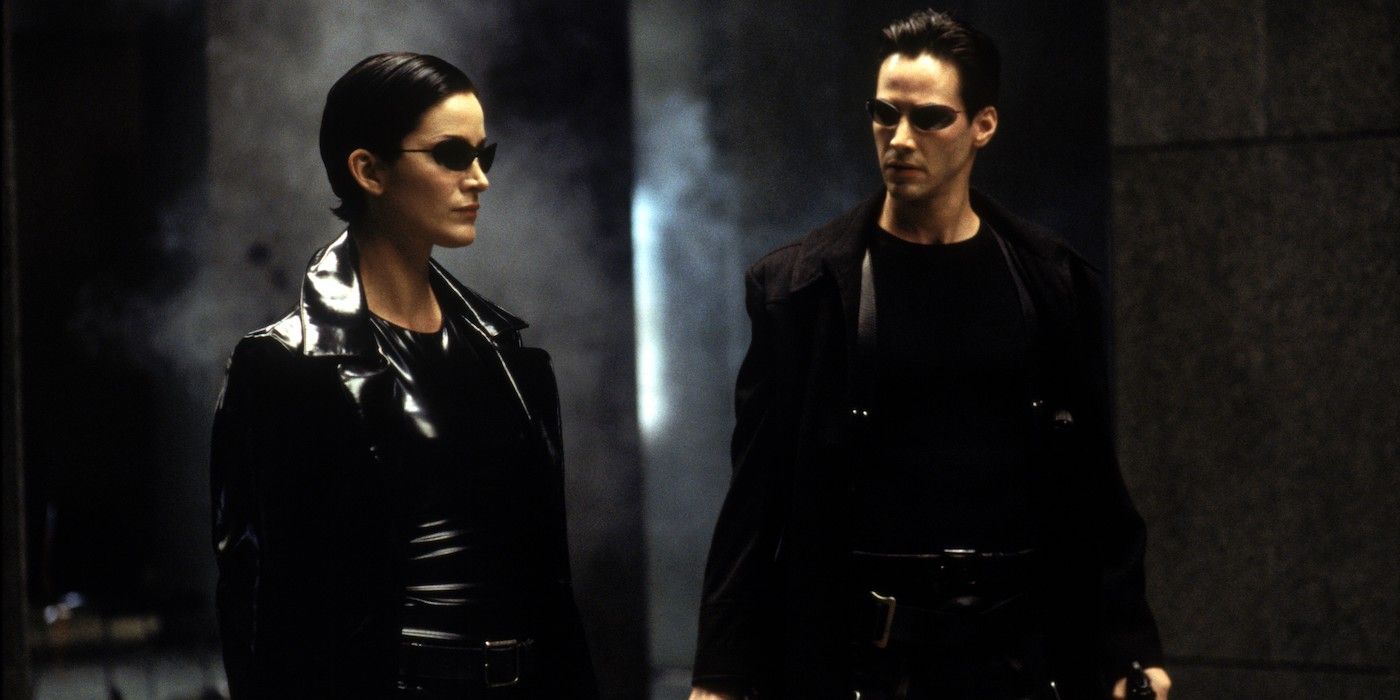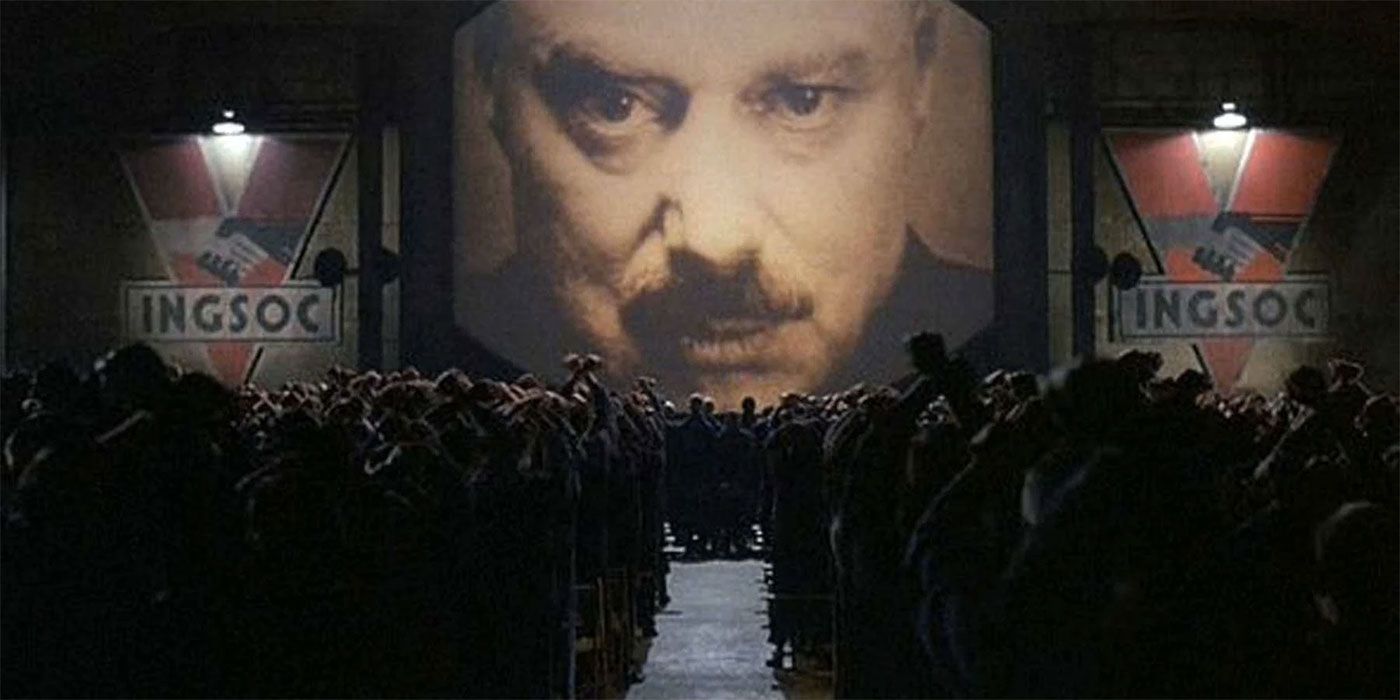Disaster movies and end-of-the-world apocalypses are hugely popular right now. The last few years have been full of excellent alternate realities from satirical Don’t Look Up, grippingly tense Birdbox, to slow-burn, apocalyptic I Think We’re Alone Now (2018). But what about good old-fashioned dystopia? Those futures that may one day be a reality. The really scary oppressive type futures that have no hope and only despair. Well, for some reason, we love them too. So take a look at cinema’s 9 greatest (or the worst if we end up in one) alternative nightmare visions.
9. The Road Warrior (Mad Max 2) (1981)
In the Australian outback, after the global collapse of civilization, Max Rockatansky (Mel Gibson), a drifter, decides to help a community that lives in fear of the ruler of the wastelands, Lord Humungous (Kjell Nilsson). The community has what Lord Humungous wants: precious fuel. They hatch a plan to escape, and with Max’s help driving the terrifying war-rig, they battle through the horde of war vehicles in an epic road fight.
Brutal and unforgiving, The Road Warrior picks up momentum and doesn’t slow down until the credits roll. Fresh-faced Gibson is perfect as moody, anti-hero Max. People may argue that this is post-apocalyptic survival, but really, as the movie describes, it’s a "maelstrom of decay" with a central dystopian element of oppressive rule and punishment, so let’s just accept The Road Warrior as an all-round, dystopian vision and possibly the greatest road movie ever made. It had to feature on our list!
8. Logan’s Run (1976)
In 2272 life is peaceful and without fear. A domed city holds its inhabitants in a near state of pleasure and ecstasy. Happiness comes with a price, and at the age of thirty everyone is sacrificed in a pseudo-religious spectacle. Logan (Michael York), is tasked to kill those who ‘run’. However, when his time comes, running from death and finding out the secrets beyond the dome become the only option.
Special effects and clothes that look comically dated aside, Logan’s Run is an evocative lesson that utopia always comes with a hefty price tag. Namely, it’s the cost of freedom and life, and utopia is more often than not just a hidden dystopia. Hunting down anyone that rises up against the machine of society is a staple within this genre. It may lack the modern-day speed of plot, but it’s worth the watch just to ask … what would you do? Conform or run?
7. Fahrenheit 451 (2018)
Based on Ray Bradbury’s brilliantly disturbing novel, Fahrenheit 451 (the temperature at which paper burns) is set in authoritarian America where books are illegal and firemen don’t put out fires, they burn books instead. Guy Montag (Michael B. Jordan) is a fireman who stumbles on an underground movement. He then becomes disillusioned with the literary censorship that blames the world’s ills on books, but fighting back is always the real problem.
Although Fahrenheit 451 was released by HBO as a TV movie, its cinematic portrayal of a terrifying, alternate American reality is beyond good enough for our list. A movie that will strike a chord in all social media users with its parallels to fake news and media control, Fahrenheit 451 shows that sometimes the smallest suppression can be the most terrifying.
6. 12 Monkeys (1995)
A deadly virus has wiped out 99% of mankind. The remnants of society are forced to live, trapped underground. Convict, James Cole (Bruce Willis) is sent back in time to attempt to trace the origins of the virus. After several time jumps, Cole questions his sanity and his mission. Was there ever a virus, and who is in the reoccurring dream that Cole sees daily? Either the planet is doomed, or Cole is insane!
Living underground and forced to comply, just to survive, is about as bleak as it gets. Cole’s paranoia, in the past, cleverly builds on the theme of the impending future doom. Brad Pitt plays Jeffrey Goines, a mental patient, activist, and leader of a group called the "Army of the Twelve Monkeys" who is suspected to have released the virus (Pitt winning a Golden Globe for his performance). Willis lays down his action stereotype to play desperation and misery with thought-provoking flair. The only shame is that he hasn’t played this type of character more.
5. Battle Royale (2000)
Set in near-future Japan. A totalitarian government, forces a class of high-school students to compete in the annual Battle Royale — a legal event designed to help cure juvenile delinquency. They are transported to a deserted island where they have three days to kill each other until one remains. Explosive collars stop the captures from breaking the rules, but is there some kind of way to survive the madness?
Battle Royale is The Hunger Games on steroids; a movie that highlights Japan’s obsession with youth culture and forces them to shoot and stab each other. It may be fictitious, but it makes a dark comment on Japanese society that most Westerners fail to notice. Delayed in North America, only being released eleven years later due to high-school shooting controversy, it has steadily become a cult classic.
4. The Time Machine (2002)
Adapted from the novella of the same name, by H. G. Wells, The Time Machine is the story of Dr. Alexander Hartdegen (Guy Pearce) who tries to save his dead girlfriend by building a machine to travel to the past. In saving her, he finds that she only dies differently. Broken with death’s relentlessness and no discernable way to cheat it, he travels far into the future to escape. There, mankind has evolved into two races, one humble and peaceful, and the other dominantly evil.
Not your run-of-the-mill dystopia, but a vision of the consequences of the human race and how we are powerless to stop time’s progression (even if we do have a time machine). Featuring some major changes from the original story, such as the destruction of the moon and the telepathic-ruling Morlock played creepily by Jeremy Irons. It’s a movie that shows the fragility of our tiny world in the vast expanse of time.
3. Children of Men (2006)
In 2027, humanity’s youngest person dies, baby Diego – aged 18. Britain is the last country to have a stable, yet brutal, government in the wake of worldwide infertility. Former activist, Theo Faron (Clive Owen) is asked to help a woman who might be humanity’s saviour — the first pregnant woman for 18 years.
To take away hope completely would be to take away our only way to continue, to reproduce. Children of Men pictures everything we hold dear and takes it away from us. A future where people are living to become extinct. It poses so many questions of morality and how we would continue, for only a short time. Owen plays one of the few remaining good guys that hasn’t quite given up on life. A depressingly, brilliant, cautionary tale – you don’t know what you’ve got until it’s gone.
2. The Matrix (1999)
Computer hacker Neo (Keanu Reeves) works, sleeps, and spends his days like everyone else. But when a stranger named Morpheus (Laurence Fishburne) offers Neo a chance to understand what The Matrix really means, Neo’s whole world is literally changed forever.
An action sci-fi like no other, the film pioneered the use of ‘bullet time’, it won four Academy Awards, including sound, effects, and editing. The Matrix, without a doubt, has one of the best visions of any dystopia. A future that has turned all human life into slaves to generate electricity for their machine overlords, and all while everyone is blissfully unaware, plugged in to The Matrix — a cyber-reality designed to keep humanity sane and to keep humanity powering the machines. Very few films have come close to the great Wachowski sisters’ cinematic vision of a living and breathing nightmare. A true masterpiece that is number one for cinematic vision, but number two for overall dystopian vision.
1. 1984 (1984)
Continuous surveillance, organized hatred, absolute conformity, and ceaseless war are what fuels our number one dystopian nightmare. Winston Smith (John Hurt) lives in the totalitarian superstate, Oceania. Living in fear of the Thought Police and the supreme leader Big Brother, Winston dares to challenge the system after meeting Julia (Suzanna Hamilton) and slowly falls in love. The trouble is, ‘Big Brother is always watching’, and Room 101 – the worst thing in the world – awaits.
Based on George Orwell’s groundbreaking book, 1984 is the most oppressive and soul-crushing story of the twentieth century. A story that has influenced literature, film, and pop culture since it was written in 1948. It introduced us with concepts such as unperson, doublethink, thought crime, and of course Big Brother. The movie adaptation may not be full of VFX and action, but it is full of dismay and oppression. Hurt epitomizes the average man in Winston Smith, and the subverted romantic ending, with Hurt’s visible pain, is an unexpected and uniquely powerful ending. This is the greatest vision of a totalitarian nightmare ever created, and sadly a movie that continues to draw parallels with real life.

